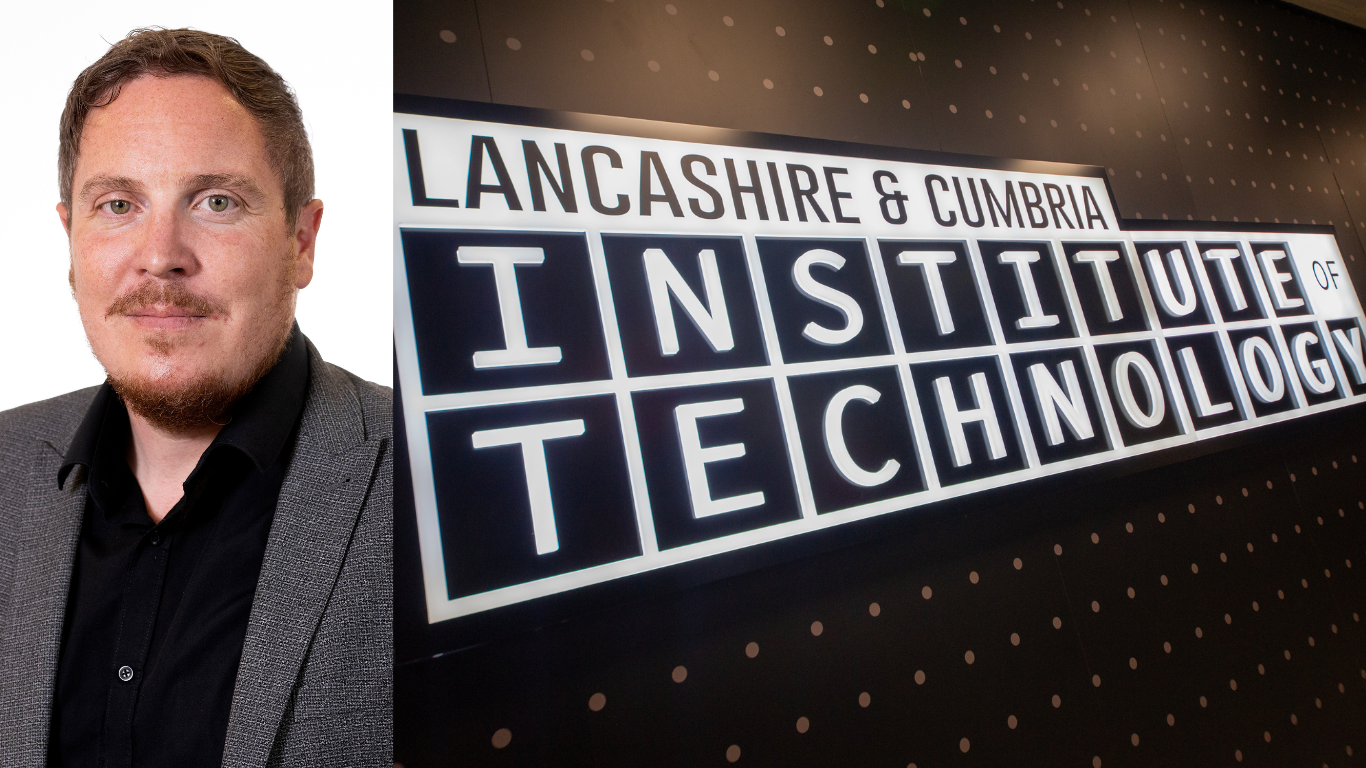
Construction industry roles are increasingly requiring digital know-how alongside practical skills – and the Lancashire & Cumbria IoT’s higher technical qualifications (HTQs) are addressing this.
IoT partner Preston College is building the construction workers the sector needs through tech-focused courses such as HNC Construction Management for England and HNC Civil Engineering, both Level 4 courses.
IoT investment has gone into providing a learning space that looks less like a classroom and more like an architecture practice, with learners getting to grips with the Building Information Modelling (BIM) software they’ll use in the workplace.
“Construction is wrongly seen as white vans, but employers in the construction industry are asking for digital skills more and more,” says Mark Taylor, Head of School for Construction, Engineering, Science, Automotive and Advanced Manufacturing.
“Regardless of whatever discipline they go into in construction and engineering, students will need to be able to model in 3D and have knowledge of other digital skills needed on site, such as for audit work and digital inspections.”
The college has a history of collaborating with construction employers on apprenticeships, and work has been ongoing with businesses such as Taylor Wimpey, Eric Wright and FWP to draw up course content that will enable learners to become the employees the industry needs. The added weight of being an IoT partner has been a fantastic boost.
“The construction industry is moving at a fast pace and thanks to the IoT we’ve embedded these digital skills into courses and worked with employers on the common key skills needed,” says Mark. Intake onto the IoT construction courses will be aided by a construction GCSE currently being offered by the college with local schools, currently benefiting 110 learners aged 14-16.
The course also involves employability skills to ensure learners are armed with personal skills as well as technical knowledge.
“Combining digital and automation skills with physical production seems to work well, and leaves us well placed to provide the industry with the employees they need both now and in the future,” Mark adds.
Click the link to find out more about our construction courses.